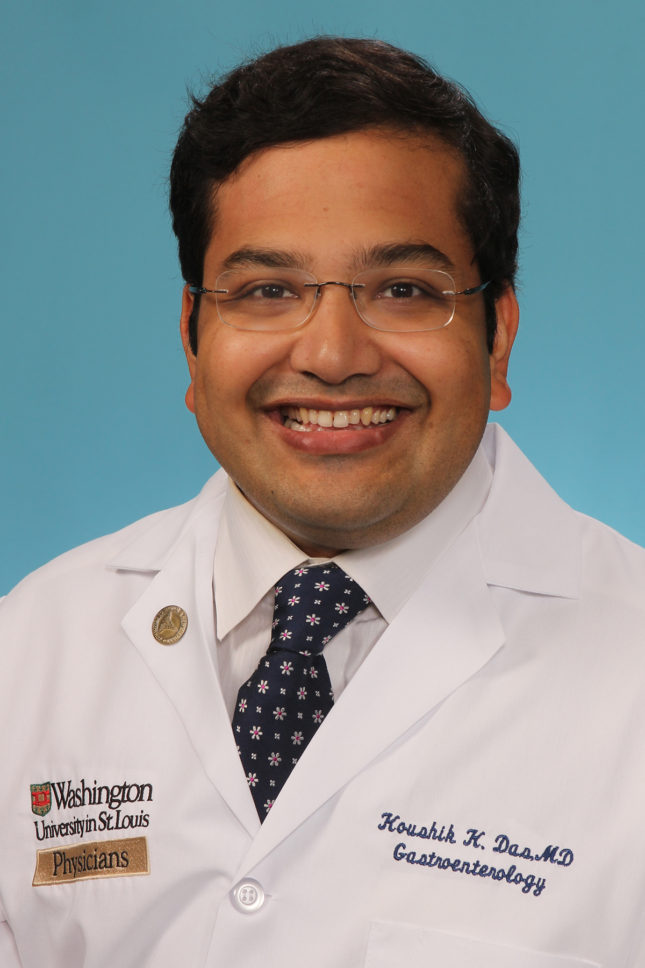

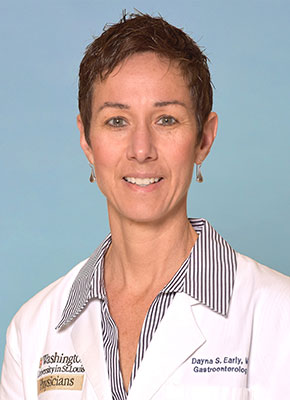
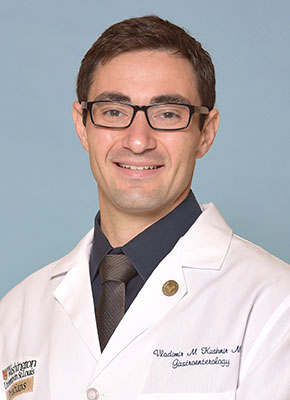
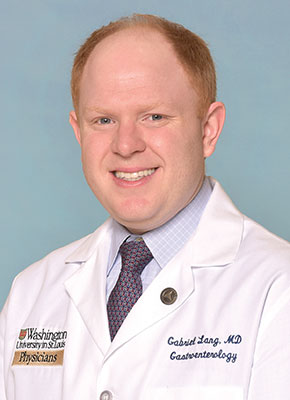
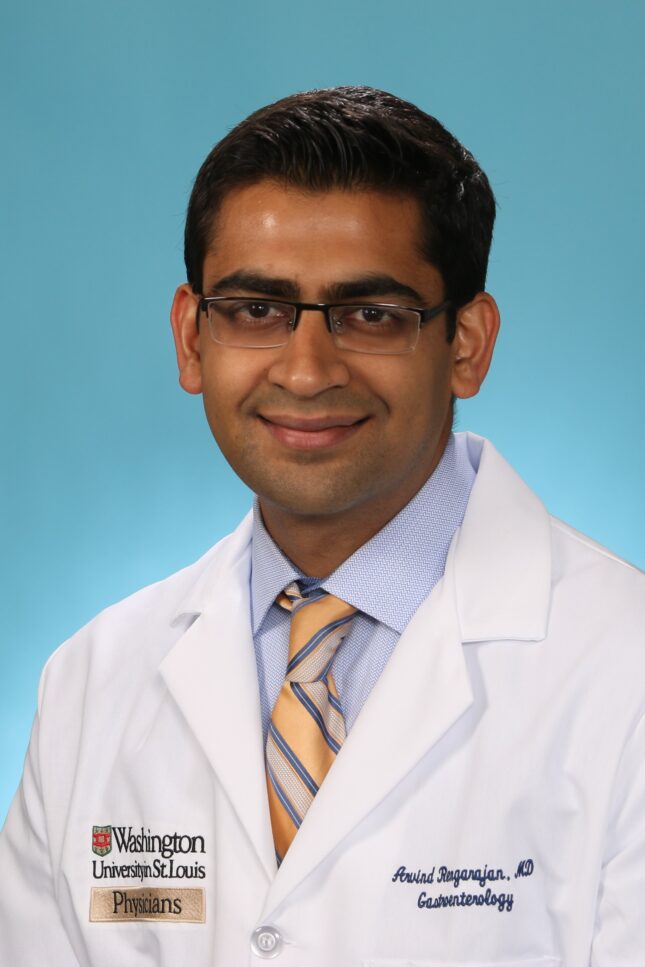
At Washington University Medical Center/Barnes-Jewish Hospital, our interventional gastroenterologists offer multiple diagnostic and therapeutic procedures to help manage patients with liver disease that are safe and effective. These procedures are done in an outpatient setting under anesthesia and most can be performed in a single session, improving the efficiency of delivering care and patient convenience. Many of these procedures are offered after discussions with patients liver specialists, to ensure safe and effective treatment.
Why Choose Washington University Medical Center/Barnes-Jewish Hospital?
Our experienced interventional gastroenterologists perform thousands of procedures every year for patients with complex diseases, including those with complex liver diseases. We work closely with expert hepatologists and surgeons.
Endo-hepatology Procedures
- Endoscopic evaluation of varices – For patients who develop high pressure from liver disease (portal hypertension), varices (enlarged vessels) can form in the lining of the esophagus and/or stomach. It is important to screen for varices and treat them if they are high risk of bleeding or have already bled. Upper endoscopy performed through the mouth allows us to determine the presence of these varices, assess bleeding risk, and perform interventions to treat bleeding or decrease the risk of first time and/or recurrent bleeding.
- Esophageal variceal banding – For high risk esophageal varices, temporary rubber bands are placed around the varices to help scar them down and decrease their bleeding risk. For patients with active bleeding from varices, rubber band variceal ligation can assist with immediate hemostasis.
- Gastric varix coiling – For gastric varices, coils can be injected to help prevent bleeding. This procedure is performed through the mouth from the stomach using ultrasound guidance with an endoscopic ultrasound (EUS).
- EUS-guided liver biopsy – Obtaining a liver biopsy allows assessment of the severity of inflammation and scarring, can help determine causes for elevated liver tests, and determine the underlying cause of a patient’s liver disease. This procedure is performed by advancing an ultrasound scope through the mouth, and liver biopsy is obtained through the wall of the stomach or small intestine under ultrasound guidance. This procedure can be combined with other endoscopic procedures, such as endoscopic evaluation of varices, to streamline patient care.
- EUS portal pressure measurement – Measuring the pressure of the vessels around the liver helps to determine if there is high pressure from liver disease (portal hypertension). This is important in helping to determine if a patient is at risk of complications such as forming varices, bleeding from varices, and needing liver transplantation. This procedure is done by advancing an ultrasound scope through the mouth and into the stomach and then carefully inserting a special needle which can measure pressure into vessels around the liver through the stomach wall. This procedure can be performed with other diagnostic interventions, such as EUS guided liver biopsy, and is always performed after expert input from our liver specialists.
- Management of post liver transplant elevated liver tests – Sometimes after liver transplantation, liver tests can become abnormal. This can be due to the immune system reacting to the transplant (rejection) or narrowing in the area where the donor and recipient bile duct are sewn together (anastomotic stricture). We are able to place temporary biliary stents into the bile duct to open up the area of narrowing during ERCP (endoscopic retrograde cholangiopancreatography), which is done through the mouth from the small intestine (duodenum). During the same procedure, we can also perform EUS-guided liver biopsy to obtain additional information regarding abnormal liver tests.
Coordinated care with an integrated team
Your interventional gastroenterologist will work closely with the rest of your healthcare staff, such as your hepatologist (liver doctor), surgeon, and primary care physician, to determine how to best manage your liver condition.
Contact us
For more information or to schedule an appointment with a interventional gastroenterologist, please call Barnes-Jewish Hospital at 314-747-WUIE (9843).